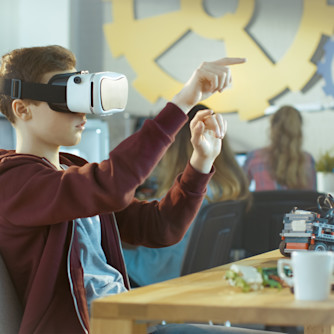DGA Gaming the projects
DGA Gaming Fieldlab has issued a call for research proposals which has resulted in the funding of five projects. Each of these projects connects a games company to an educational institution in a consortium to conduct research. These consortiums will work together for a duration of two years and will present their progress at regular intervals.
DGA Gaming Fieldlab is a collaboration between Dutch Games Association and CLICKNL that supports the Dutch games industry by accommodating research-industry collaborations. It has acquired funds for joint research into advanced game technologies and associated methodologies that aim to bring game design and development to the next level. To strengthen the game development community the DGA Gaming Fieldlab arranges research-industry meetings for discussion and knowledge sharing. Furthermore, the DGA Gaming Fieldlab offers guidance and advice regarding game research and takes up a matchmaking role between game professionals and researchers.






